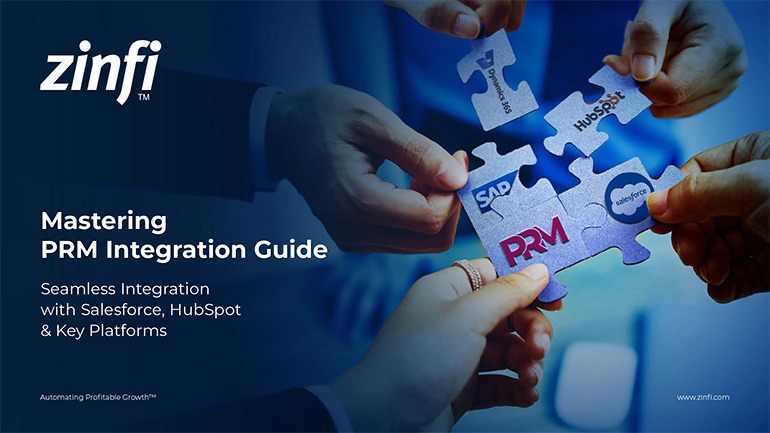Glossary - How to - Distributor Marketing
How to Implement Effective Distributor Marketing?
Introduction
Understanding Distributor Marketing
Distributor marketing refers to the strategies and activities businesses employ to promote products and services through a network of distributors. Unlike direct-to-consumer (DTC) marketing, distributor marketing involves a business-to-business (B2B) approach, where companies rely on intermediaries to reach end customers. These intermediaries help expand market reach, optimize supply chains, and improve product availability in different regions.
In the partner ecosystem, distributor marketing ensures distributors sell and promote a brand’s offerings. Effective distributor marketing requires alignment between manufacturers, suppliers, and distributors to achieve shared business goals.
The Role of Distributor Marketing in Partner Relationship Management (PRM)
Partner Relationship Management (PRM) platforms streamline distributor marketing efforts by centralizing resources, tracking performance, and facilitating communication between manufacturers and distributors. A well-implemented PRM system ensures that marketing campaigns are executed consistently across distribution channels, leading to increased sales, improved brand visibility, and enhanced distributor engagement.
Key Takeaways:
Develop a Comprehensive Distributor Marketing Plan:
A well-structured marketing plan tailored to distributors includes:
- Target Audience Analysis: Understanding distributor capabilities and end-user preferences.
- Marketing Collateral: Providing ready-to-use marketing materials such as brochures, digital content, and promotional campaigns.
- Performance Metrics: Setting clear KPIs to measure marketing success.
- Incentive Programs: Offering rebates, co-marketing funds, and performance-based rewards to encourage distributor participation.
Leverage Digital Marketing and Automation:
Digital marketing is essential in modern distributor strategies. Key tactics include:
- Email Campaigns: Sending personalized promotions and product updates.
- Social Media Engagement: Encouraging distributors to share branded content.
- Search Engine Optimization (SEO): Ensuring distributors can access optimized product descriptions and marketing assets.
- Marketing Automation: Using PRM-integrated tools to automate lead generation and follow-ups.
Strengthen Distributor Enablement with Training and Support:
Distributors need adequate support to market products effectively. Companies should provide:
- Product Training: Webinars, documentation, and interactive sessions to enhance product knowledge.
- Sales Tools: Ready-made presentations, pitch decks, and case studies.
- Technical Support: Access to dedicated support teams to address distributor queries promptly.
Implement a Co-Branding Strategy:
Co-branding allows manufacturers and distributors to promote products collaboratively. Best practices include:
- Co-Branded Marketing Materials: Creating unified branding across promotional assets.
- Joint Events & Webinars: Hosting collaborative events to generate leads.
- Co-Funded Advertising: Sharing costs on digital ads and marketing campaigns.
Monitor and Optimize Distributor Performance:
Tracking and optimizing distributor performance is essential for sustained success. Key methods include:
- Analytics & Reporting: Leveraging PRM tools to track distributor engagement and sales conversions.
- Feedback Mechanisms: Conducting surveys and direct interviews with distributors.
- Continuous Improvement: Adjusting marketing tactics based on distributor feedback and performance data.
Summary of Key Takeaways:
- A structured marketing plan enhances distributor engagement and sales.
- Digital marketing and automation improve reach and efficiency.
- Training and support empower distributors to promote products effectively.
- Co-branding strengthens market presence and fosters collaboration.
- Performance tracking ensures continuous optimization of marketing efforts.
Key Examples:
- Automotive Manufacturing: Automotive brands use distributor marketing to promote vehicle parts and accessories. Co-branded promotions and technical training help distributors to market premium products effectively.
- Consumer Electronics: Manufacturers collaborate with retailers and online distributors to showcase product features through interactive content and influencer marketing.
- Energy Production: Energy companies use distributor marketing to educate customers about new sustainable technologies, leveraging SEO-driven content and distributor-led training programs.
- Financial Services: Product distributors benefit from targeted email marketing and personalized consultation programs to educate potential customers.
- Food and Beverage: Brands use distributor marketing to enhance brand visibility in retail outlets through co-branded promotions, tasting events, and packaging incentives.
- Healthcare Services: Medical equipment manufacturers support distributors with in-depth product training and regulatory compliance assistance to ensure effective marketing.
- Information Technology: IT vendors use distributor marketing for software solutions, offering demo programs, referral incentives, and joint webinars to boost sales.
- Pharmaceutical Development: Pharmaceutical brands provide distributors with extensive regulatory training and localized marketing campaigns to ensure compliance and engagement.
- Retail Industry: Retail distributors benefit from seasonal promotions, digital advertising co-funding, and omnichannel marketing strategies.
- Telecommunications: Telecom companies partner with distributors to promote network services through bundled offers, localized campaigns, and customer loyalty programs.
Conclusion:
Distributor marketing is a vital component of an effective partner relationship strategy. Businesses can drive sustained success in their distribution networks by implementing structured marketing plans, leveraging digital tools, enabling distributors through training, co-branding strategies, and continuous performance monitoring. PRM platforms are crucial in streamlining distributor marketing efforts, ensuring alignment between manufacturers and their partners.
Associated Keywords:















